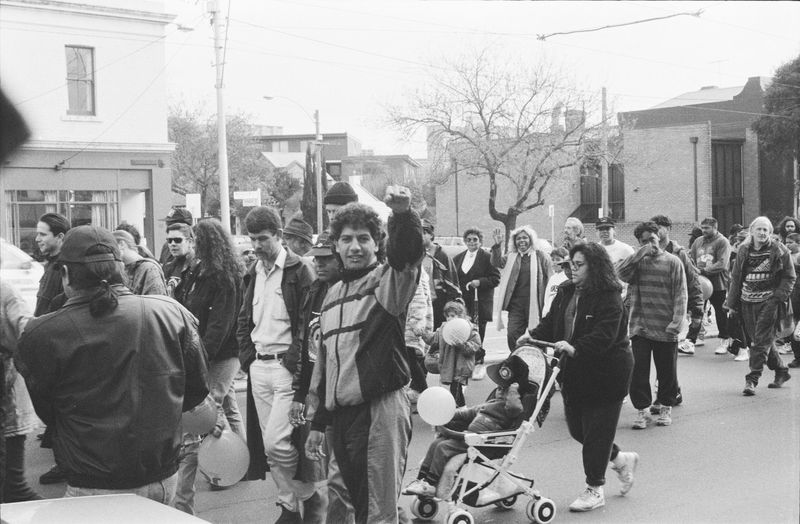Politics
Aboriginal people have always been political. Since colonisation, attempts to exclude Aboriginal people from decision making proceses that affect their communities has seen Aboriginal activists and organisations advocate strongly against institutional racism. This is highlighted in Richard Frankland's discussion below.
"I think it's important to talk about the environment at the time."
"Because the environment was quite hostile."
"And we were seen as... a problem, as victims. And so the exclusionary practises, which [are] still very apparent today of the institutions and mainly the white patriarchy, was quite profound. So, that drove us together in a pretty remarkable sort of a way. Not only the similarities in our different [Aboriginal] cultures, but in our overarching culture. So people were reaching out to each other and the level of support and trust… was indivisible in the sense of people... you couldn't put a cigarette paper between people."
"...the marches that we did back then were a show of solidarity..."
"We see our organisations who put up this incredible fight over the years, again and again being hammered by a government and then hammered by our own. We see governments putting incredible resources behind the celebration of a policy, and we see the policy go nowhere. And ...we see them fuel the flames of conflict between [ourselves], and quite often that's driven by non-Aboriginal policies and protocols. And the legacy that they leave is, it ends up families and clans and tribes doing battle. But I see great things though. I see great resistance and resilience. And one of the things about all of those traumas, and the historical and the contemporary ones is in managing that trauma. It takes a great deal of effort and it's really difficult. And what I see is that in itself [these are] acts of resistance and resilience."
Richard Frankland (18 December 2020)
